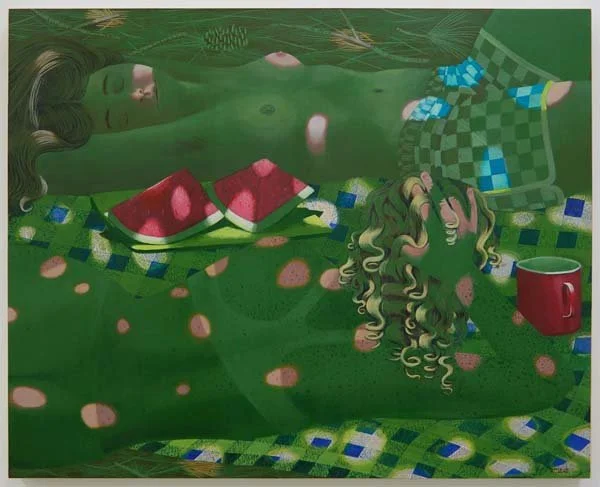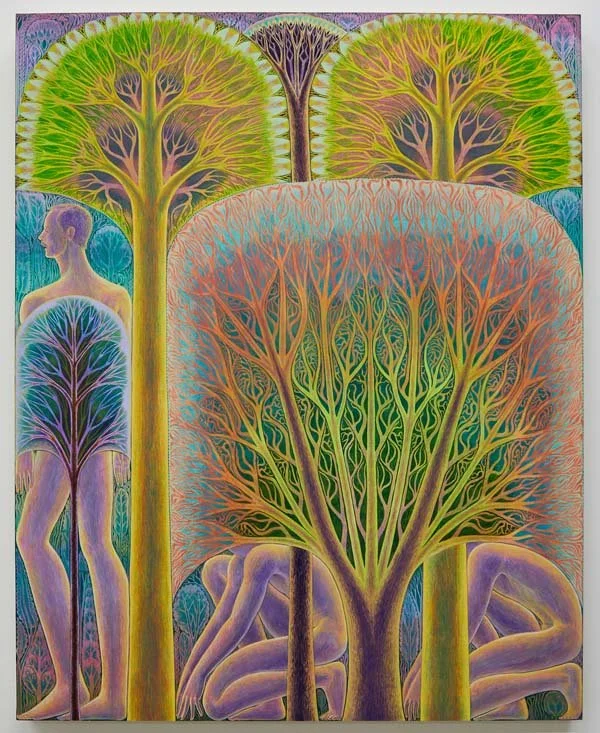A Conversation with Monya Rowe
Owner | Director of Monya Rowe Gallery
224 West 30th Street, #304
New York, NY 10001
@monya_rowe_gallery
Was there a moment when you became aware that art was going to be central in your life? For you, what is the importance of the arts?
I’ve always been into interesting, creative things in some way, but I can’t say it’s always been highbrow. There wasn’t a turning moment of realizing I like art; it all just came naturally. I think art connects people, inspires, challenges, and helps us to understand ourselves.
What does your typical day look like? And what do you love about your job? Whenever I think it’s going to be a day of answering emails and chatting with people and clients in the gallery, something happens to change that. There really isn’t ever a typical day, which I love. I get to be around interesting and intellectually stimulating people who appreciate looking at and thinking about art and that is a big bonus.
What exhibitions or projects are you working on at the moment? Running a gallery means always looking ahead, so I constantly have one foot in the present and one foot in the future.
The work of art most important for me is… I could never choose one object as being the most important. My interests and what I’m looking toward for inspiration is constantly changing. I’d say the gallery programing is somehow influenced by literature, music, film, and art history.
Which artist, alive or dead, would you like to meet? I don’t think I want to meet my so-called heroes. It's more fun to imagine rather than know.
How do you select artists and artworks for your gallery? What qualities and criteria are you looking for? I’m looking for a unique voice with talent. I rely a lot on my intuition to identify that.
A great thing about living in New York is… A no-brainer answer is art. Also, I can wear heels and a dress every day without being asked “why are you dressed up?” Although, I’m still asked that.
In your opinion, what role do galleries play in shaping public perception of contemporary social issues? How can they influence the broader conversation? Galleries, not beholden to the mainstream or their peers, are unafraid to voice an alternative view that might be rooted in politics or sexuality. They also identify the art they perceive as being important to the canon. Before it’s seen in a museum, it was in a gallery.
When developing a new show, how do you ensure the artist’s vision stays intact—while also building something that resonates with your audience and space? Collaboration is very important. Getting along personally with the artist is a huge part of a successful working relationship. If I don’t want to have a drink with you, I probably won’t want to work with you, no matter how good the work is. The artist and the dealer should both feel comfortable and trust each other. It really eliminates a lot of unnecessary stress, and no one needs more stress in their life.
Many gallery owners speak of mentors who helped shape their vision. Was there anyone who played that role for you? And what advice would you pass along to someone just starting out? Don’t take yourself too seriously. Be prepared for the roller coaster; what goes up, always comes down.
Many people I know and don’t know have inspired me along the way. Right now I’m inspired by Oasis. Everything I absorb is reflected in the curation and the way I run the gallery. I tend to do what works for me, not what everyone else is doing, and I think that’s a big part of why the gallery has been open 20 years and why I’m often told that the program is unique.
AI is reshaping everything from how we create to how we connect. As someone who champions handmade, human-centered work, how do you see technology shifting the culture around art—and how are you responding to that shift? I don’t think AI will replace handmade art, but we can’t ignore its’ impact on the culture and potential consequences such as loss of jobs and human connection. I do feel like I am living in the film “Her” when I see almost everyone looking down at their phone as they walk, headphones in. I think the phone has been detrimental to our culture.




















































































